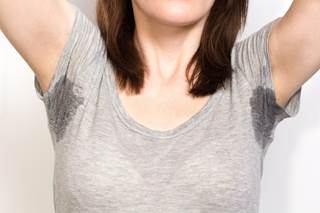February 22, 2019

Hyperhidrosis was more prevalent among both men and women who were obese compared with those of normal weight.
Obesity in adolescents is associated with an increased risk for hyperhidrosis, according to a study recently published in the Journal of the American Academy of Dermatology.
This cross-sectional study included 2,772,468 adolescent Israeli individuals, 59.6% of whom were male. These individuals had enrolled in compulsory military service between 1967 and 2016 and were given a medical examination at a mean age of 17.3 years old. Hyperhidrosis was diagnosed by a dermatologist, which was present among 1.5% of individuals (n=42,539; 68.9% men).
Hyperhidrosis was more prevalent among both men and women who were obese compared with those of normal weight (2.9% vs 1.5% and 1.6% vs 1.1%, respectively). The adjusted odds ratio (aOR) for overweight vs normal weight men was 1.3 (95% CI, 1.25-1.34), and the aOR for obese vs normal weight men 1.4 (95% CI, 1.34-1.46). For overweight and obese women vs normal weight women, the aORs were 1.1 (95% CI, 1.04-1.17) and 1.2 (95% CI, 1.07-1.27), respectively.
With each increasing body mass index unit, men experienced a 3.2% (95% CI, 1.029-1.035%) increase in risk for hyperhidrosis, and women experienced a 1.5% (95% CI, 1.010-1.019%) increase in risk. Among participants whose health was unimpaired, these results were accentuated. Among participants with obesity, those with class II obesity had higher odds ratios: 1.5 (95% CI, 1.3-1.6) for men and 1.4 (95% CI, 1.2-1.7) for women.
Limitations to this study included a lack of data on primary vs secondary hyperhidrosis, as well as a timespan of 5 decades over which hyperhidrosis criteria could have evolved.
The study researchers concluded that “obesity is associated with hyperhidrosis among adolescents. Future studies are required to further investigate this association and to determine whether weight reduction may have a therapeutic role in these patients.”
Reference
Astman N, Friedberg I, Wikstrom J, et al. The association between obesity and hyperhidrosis: a nationwide, cross sectional study of 2.77 million Israeli adolescents [published online January 21, 2019]. J Am Acad Dermatol. doi: 10.1016/j.jaad.2019.01.019